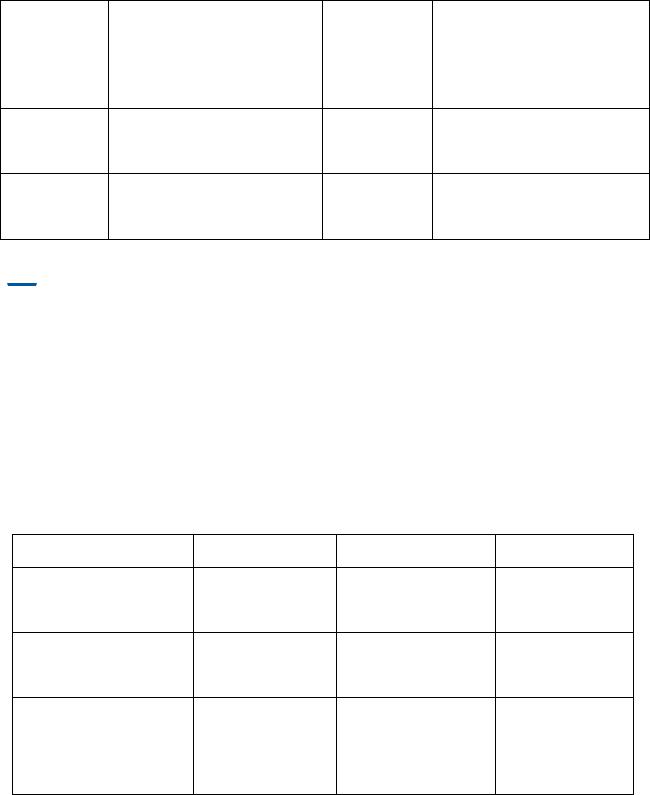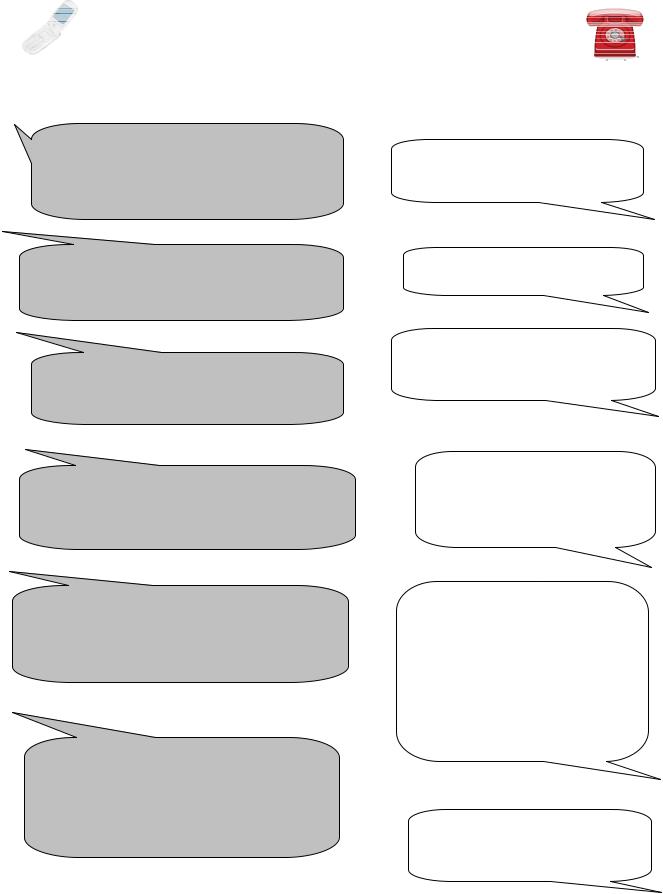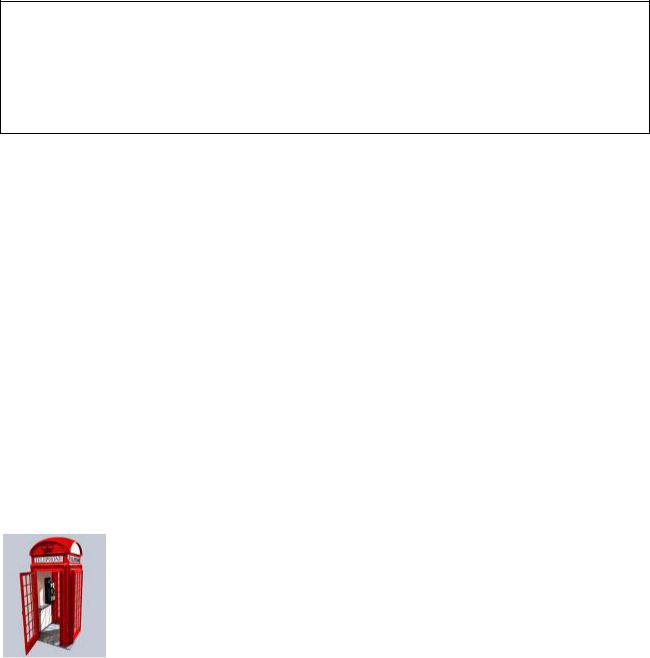
ENGLISH for Study and Work том 1
.pdf
Reading and Writing
11. Read a letter written by a first-year student. Find fifteen mistakes in it. Make the necessary corrections.
Dear Petro
I have been in Dnipropetrovsk for a month. At the moment i am studying at the National Mining University, so I living in a Residence Hall in a room 345 with three other students. There are from different mining towns. We have a lot common and sharing the same interests.
We are hectic up to our eyes with studying during our daytime, but in the evenings… We listen to the music, having tea and endless talks on this or that. I study at the Mining Faculty and planning come back to our town.
Dnipropetrovsk is large noisy city. Here everyone is in rush. I have tired by this tempo and missing my home and our native town. I like the week-ends here very much, especially going out down town or to a disco or night club. Unfortunately, they are too expensive, but it worth going at least once.
Although, I getting scholarship, I thinking on finding a job to earn some money. How are you there. What’s new?
Looking forward to hearing from you soon.
Best wishes
Vasyl
P.S.: I attached some photo of me and the place of my residence.
Follow-up
12.Write a letter to your friend describing your daily routine.
13.Describe your experience of learning English focusing on what you know and can do using English. Make your Action Plan for the whole course and for this module, in particular.
5049
Unit 5 Making Arrangements by Phone
Focus on
•listening to recordings of telephone calls
•taking and making messages
•identifying speaker viewpoints and attitudes as well as the information content
•taking a series of follow-up questions
•making telephone calls for a specific purpose related to academic or professional area
By the end of the unit you will be:
•able to make a telephone call in English
•able to take a message while telephoning
•aware of the peculiarities of taking a formal telephone call in English
•aware of structure of a typical telephone call
Start-up
1. Group-work. Being in groups of three or four discuss the following questions:
•Have you ever made a phone call in English? If yes, who to? What was it about?
•Are there any difficulties for you when speaking on the phone in English? If yes, what is difficult and why?
2.Share your experience and problems appear when speaking on the phone in English with the whole group.
Brainstorming
3. Think on what makes an effective telephone call. Fill in the diagram below with your ideas. One of the components has been put for you. Compare your diagram with a partner.
510

Telephoning
Language
Reading
4. Below are the rules on HOW TO MAKE A FORMAL CALL. Read them carefully and fill in the blank cells in WORSHEET 1. 2 using the information from Part II Self-study Resources.
WORKSHEET 1. 2
Person Answering |
|
|
Caller |
|
|
|
|
|
|
First words |
Hello, Mining Department |
|
First words |
Hello. Is Professor |
|
of the National Mining |
|
|
Bondarenko there? |
|
University. |
|
|
|
|
Secretary of Professor |
|
|
Hello. I’d like to speak to |
|
Bondarenko (is speaking). |
|
|
Professor Kuzmenko. |
Finding out |
(May I ask) who’s calling, |
|
Introducing |
This is John Smith. |
who is |
please? |
|
yourself |
I’m calling about… |
speaking |
Can I take your name? |
|
and the |
|
|
|
|
reason of |
|
|
|
|
your call |
|
Continuing |
I’ll put you through. One |
|
Continuing |
|
the call |
moment. Hold the line, |
|
the call |
|
|
please. |
|
|
|
|
I’m afraid he’s not here at |
|
|
Could he call me back? My |
|
the moment. Would you |
|
|
number is … |
|
like to call back later? |
|
|
Can I leave a message? |
|
Can I take a message? |
|
|
|
|
|
|
|
|
|
|
521 |
|
|

Taking a message/ Leaving a message
Confirming
 Grammar Reference:
Grammar Reference:
Numerals, Modals.
Listening and Taking notes
5. Listen to the three telephone conversations and fill in the table given below:
Call 1 |
Call 2 |
Call 3 |
Caller’s name
Caller’s phone No.
Message
STRUCTURE OF A FORMAL CALL
6. Put the phrases giving below in the correct order. Keep in mind that some phrases can be omitted for some reasons.
532

Caller |
Person answering |
I’m afraid he is not available in at the moment. Would you like to call him back in 10.
I’d like to speak to Professor Kuzmenko.
Hello. Is it Department of Underground Mining?
It’s Professor Brown from Frieburg School calling.
It’s OK with me. Tomorrow morning at Professor Kuzmenko’s Office at 10 o’clock?
I would like to meet Professor Kuzmenko tomorrow morning at his office. Will he be available?
May I ask who is calling, please?
Hello. Speak up, please.
Unfortunately, no. Can I leave a message for him?
Hold the line, please. I’ll take a piece of paper. Are you there?
Ok. Tomorrow morning at Professor Kuzmenko’s office at 10 a.m. I will pass your message to him. Good-bye. See you tomorrow in the office.
Tomorrow morning? Does 10 a.m. suit you?
543

7.Pair-work. Make a dialogue simulating a telephone call using the phrases given above. Dramatize it.
8.Make a message by filling the gaps in a sample given below using the information got from the simulated call.
Date:
Message for:
Subject:
Reminder -
Reading and Following Instructions
9. Read recommendations how to keep in touch with home while studying at an English College.
Telephone: Receiving phone calls
If you have a mobile phone which can work in the UK you will be able to make and receive phone calls easily, though this could be very expensive.
Whether you live on campus or with a Homestay Host, you will be able to receive phone calls from home. Please be considerate to others and make sure that people calling you from your home country are aware of the time differences with the UK.
On campus there are phones in the corridors of the Halls of Residence which receive incoming calls only. Each phone has a fourdigit extension number. The person calling you will need to know the extension number of the phone nearest your room.
Your caller must first dial the main College Switchboard Number (see box on the next page). The phone is answered by a recorded message. As soon as this message begins your caller can dial your extension number.
Consider others, and call them to phone if you answer it and the call is for them.
554

If there is a phone in your room you can set up an account to make and receive phone calls. Details of this service are in your room, and available from Alison or Patricia.
The College Switchboard Number is
From outside the UK: +44 1752 636700
Telephone: Making Phone Calls
You can make phone calls from payphones in the College. This is convenient though it can be expensive.
There are payphones in the Reception area and near the Student Union Office, in the Halls of Residence and the Student Village. Some phones take cash, others take phone cards.
You can buy phone cards from the College Bookshop. The phone cards are cheaper, especially if used from a private phone. Using a phone card in a public phone is much more expensive.
(From GUIDE FOR COURSE PARTICIPANTS of Marjon International)
10.Answer the questions using the information from the text:
•Are telephone calls cheap from the UK? If yes, which ones?
•Where can you find phones in the College?
•Where can you find payphones in the College? Name all the places.
•Are there any phones in the rooms? If yes, what do you need to do to be able to make and receive phone calls?
•What is the cheapest way to make a telephone call?
•Why it is necessary to be aware of time differences?
11.Read the information given below and make word to word translation of English clichés used for making a telephone call into Ukrainian. Compare them and find the differences.
56

For you to Know
Making a Telephone Call in English
Before the Call:
1.Check the country and city codes as well as the telephone number you are going to dial.
2.If there is an extension number, write it down on a piece of paper.
3.It is recommended to put all the codes and telephone numbers on a piece of paper.
Remember: On the contrary with the Ukrainian telephone numbers, foreign phone numbers are written and pronounced as a sequence of numerals.
Eg. +3 80567783455 (plus three, eight, zero, five, six, double seven, eight, three, four, double five).
During a Call:
Use the appropriate English clichés equivalent to the Ukrainian ones. Pay attention to the differences and remember the clichés:
Слухаю. - Speaking.
Говорить... - This is Mr … calling.
З’єднайте мене, будь |
ласка з... - Could you put me through to Mr…? |
Не кладіть трубку! - |
Hold on, hold the line! |
Нас раз’єднали, передзвоніть, будь ласка. - We were cut off, please, repeat the call.
Ви мене чуєте? – Are you there?
Вас погано чути! - I can’t hear you well!
Продовжуйте, говоріть. – Go ahead, please.
Говоріть голосніше! - Could you speak up, please.
576

At the end of a call:
Do not forget at the end of your talk to confirm the information got through the call!
12. Match the typical Ukrainian words and phrases used for telephone calls (1-20) with the English ones given in the right-hand column (a – u).
1. |
Слухаю. |
a) |
Are you there? |
2. |
Говорить... |
b) |
May I speak to Mr… |
3. |
З’єднайте мене, будь ласка з... |
c) |
Go ahead, please. |
4. |
Його/її не має на місці. |
d) |
Hold the line, please. |
5. |
Вона/він зараз зайнятий. |
e) |
I can’t here you well! |
6. |
Що йому переказати? |
f) |
Could you leave a message? |
7. Не могли би Ви залишити |
g) |
receiver |
|
йому повідомлення? |
|
|
|
8. |
Не кладіть трубку! |
h) This is Mr … calling. |
|
9. |
Вас погано чути! |
i) You’ve got a wrong number. |
|
10. |
Говоріть голосніше! |
j) |
extension (number) |
11. |
номер комутатора |
k) |
S/he is very busy now. |
12. |
Номер не зайнято. |
l) |
Speaking. |
13. |
довгий гудок |
m) We had a very bad |
|
|
|
connection. |
|
14. |
Зачекайте! |
n) |
I’ll wait for your call. |
15. |
Поганий зв’язок! |
o) |
Could you put me through to |
16. |
Я зателефоную пізніше. |
p) |
dialing tone |
17. |
слухавка |
r) |
ringing tone |
18. |
Ви помилились номером. |
s) |
Wait a minute. = |
|
|
Just a moment. |
|
19. |
Було дуже погано чути. |
t) He’s not in (now). |
|
20. Я буду чекати на Ваш |
u) I will call back. |
||
дзвоник. |
|
|
|
587

Simulation
Situation 1. Student A is in the office of the department alone as everyone has gone out to have lunch. A telephone is ringing. You are to answer it and leave a message for Professor Tarasuk.
Student B. You are Professor Helmut from German university. You are calling Professor Tarasuk to make all the necessary arrangements on your meeting in Kyiv on 30 November. Leave a message with an offer to call him back.
Situation 2. Student A is calling his/her friend who is studying in a foreign university. An extension number is 3005. Make a call to the university and ask to put you through with your friend.
Student B. You are in the university Residence Hall which is not far from a telephone the extension number of each is 3005. Answer the call and inform your friend when you are arriving in Ukraine for holidays.
Situation 3. Below is a message left by one of the members of Student Union. Read it and dramatize a telephone call.
Date: 29/11/08
From: Mr Green To: Alex Gavrilchenko Topic: Students’ Forum in the National Mining University in April 2010.
Reminder: Call back to Mr Green tomorrow morning at 9.30 a.m. American time. Mr Green’s number + 385 44522709, extension number 452.
598
